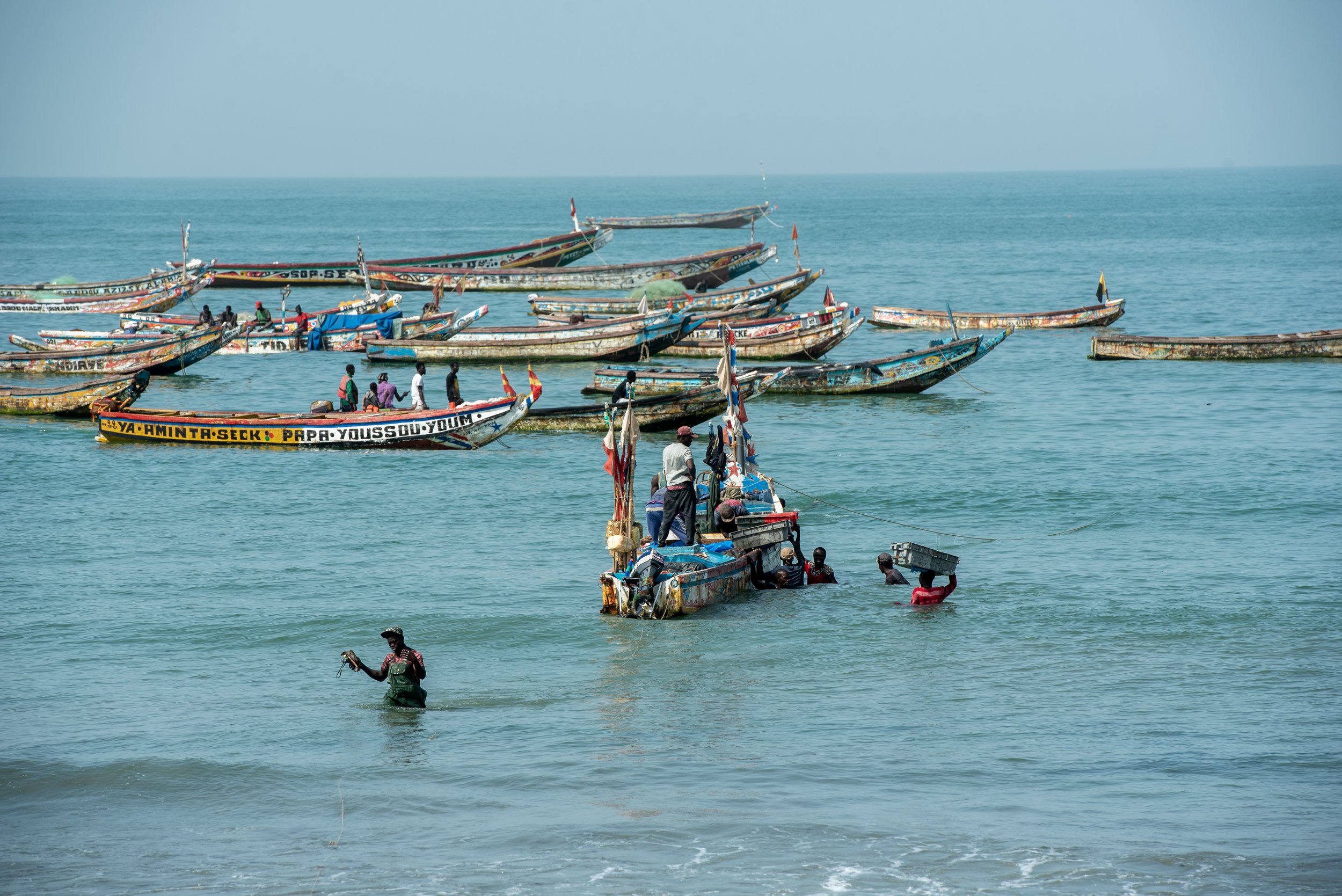

All publications related to Mauritania
JOINT LETTER: 11 African artisanal fisheries organisations and development NGOs send a letter to Commissioners Virginius Sinkevicius and Jutta Urpilainen asking them to use the crucial voice of the EU through Sustainable Fisheries Partnership Agreements and the EU-Africa partnership to address the impending food crisis in the West African region linked to the fishmeal and fishoil production.
The latest minutes of the meeting of the last Joint Scientific Committee (JSC) of the Sustainable Fisheries Partnership Agreement between the European Union and Mauritania reveal that there is still a long way to go to ensure that all EU fleets active in Mauritania fish sustainably, particularly as regards the control and limitation of by-catches and discards.
In a contribution sent to the European Commission, co-signed with 8 other civil society and environmental organisations, we highlight the most important points to be taken into account for the renewal of the protocol, to ensure that the fishing agreement has a positive impact for small-scale coastal fishing communities.
For the agreement to contribute effectively to the Sustainable Development Goals, it is essential that the forthcoming negotiations, prior to the thirteenth ministerial conference, focus on the main threat to artisanal fisheries in Africa: overfishing and overcapacity, especially by foreign-owned vessels.
In this article first published in French in Annuaire Droit Maritime et Océanique, Université de Nantes, tome 40 XL (2022), the author calls for the establishment of a sardinellas Regional Fisheries Management Organisation (RFMO) between Senegal, The Gambia and Mauritania.
The strategy of transforming seafood industry through voluntary partnerships and market-based incentives is the approach currently favoured by many environmental NGOs and donors. The case of Mauritania reduction fisheries “Fisheries Improvement Project” highlights the fundamental flaws with the corporate friendly approach and the urgent need to resist this model becoming normalised.
The PESCAO programme for the improvement of fisheries governance in West Africa, financed by the EU from the 11th EDF Regional funds, started in June 2017 and will end in June 2024. After nearly 4 years, an evaluation is underway to assess the results obtained and to see how to improve its implementation, in a context where the countries of the ECOWAS region are focusing on the development of a blue economy strategy.
This week the European Parliament is discussing a first draft by rapporteur Izaskun Bilbao on the Sustainable Fisheries Partnership Agreement between the European Union and Mauritania. This agreement is of great interest to the EU fisheries sector and is the most expensive of all fisheries agreements between the EU and third countries.
In this third article in the series on fisheries in Mauritania, the authors review the state of overexploitation of small pelagic stocks, look at the ways the EU SFPA seeks to address the issue and come back to the demand of several stakeholders for a regional fisheries management organisation for shared small pelagic stocks.
Note: Banner photos by Michał Huniewicz and Christine Vaufrey/Flickr.

News from Mauritania
A Senegalese civil society organisation, member of the OECD Watch network, supported fishers from Saint Louis in placing a complaint to the UK and US OECD National Contact Points against the multinational enterprises British Petroleum and Kosmos Energy.
The annual report on exports of fishery products confirms the trend: Senegal is becoming, after Mauritania and the Gambia, one of the countries that favours the production and export of fishmeal and fish oil to the detriment of the nutrition of its population.
The FAO organised a workshop in Accra (Ghana) from 5 to 7 December on the theme: "Optimising food and nutritional security and the benefits of small pelagic species production in sub-Saharan Africa". In a joint presentation, CAOPA and CFFA warned of the impact of the decline in sardinella in West Africa on fishers, women fish processors and consumers.
The discussion on Olvea’s role in the exploitation of West Africa small pelagics for fishoil comes as the OECD’s Guidelines for Multinational Enterprises on Responsible Business Conduct have recently been updated and strengthened, to ensure responsible business conduct regarding their impacts across areas such as climate change, biodiversity and supply chain due diligence
From 8 different African countries, representatives of coastal fishing communities participated to a seminar on the external dimension of the CFP hosted by the EU Long Distance Fisheries Advisory Council (LDAC) in Sweden and then travelled to Brussels where they exchanged with decision-makers from the Commission and the European Parliament.
An episode of ARTE's investigative magazine Sources, entitled “Salmon: a story of smoke and mirrors,” traces the journey of fishmeal and fish oil produced in Mauritania coming to Europe.















The Joint Committee of the EU-Mauritania SFPA will meet in Nouakchott from 4 to 6 December 2024. In this article, the author makes a number of recommendations in the light of the conclusions of the Fishery Committee for the Eastern Central Atlantic (CECAF). In its latest report, CECAF described the catastrophic situation of shared stocks of small pelagics and recommended a substantial and immediate reduction in fishing effort of 60% for flat and round sardinella.